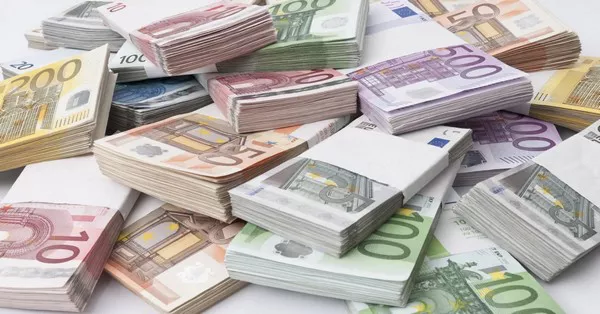Monday
European Central Bank (ECB) policymakers are not expected to alter their stance on the necessity of maintaining high interest rates until their meeting in March, complicating the possibility of a rate cut before June, according to information from seven sources familiar with the matter, as reported by Reuters.
Following Thursday’s decision to keep borrowing costs at record highs, ECB President Christine Lagarde attempted to counter market expectations of an imminent rate reduction, but her efforts faced limited success. The sources noted that any potential shift towards a more dovish stance similar to the recent move by the U.S. Federal Reserve would only be considered after assessing data up to their March 7 meeting at the earliest.
Deliberating a rate cut before June, when crucial wage data for the next year will likely be available, is deemed challenging, at least two months later than what the market currently anticipates. The divergence between market expectations and policymakers’ views has been a central concern at this week’s Governing Council meeting.
The disagreement is partly attributed to differing perspectives on inflation. While investors foresee a continued decline in inflation, most central bankers believe the recent drop is temporary. Some sources suggested that a rate cut might be plausible even before June if inflation continues to undershoot expectations.
However, others argued that the ECB should more forcefully counter traders’ views to avoid undermining the central bank’s tightening efforts. The ECB has raised rates 10 consecutive times in the past 1-1/2 years. A spokesperson for the ECB declined to comment, reiterating Lagarde’s emphasis on the central bank being “data-dependent” rather than “time-dependent.
Public statements from ECB governors on Friday indicated no urgency to cut rates. Bundesbank President Joachim Nagel cautioned that it was “too early to sound the all-clear” on inflation, and Austrian colleague Robert Holzmann dismissed a question about the timing of a rate cut. Banque de France’s governor, Francois Villeroy de Galhau, acknowledged that the next ECB move would be a rate cut but emphasized that the central bank would stay at the “plateau” for rates for a while.
Money markets currently price in a 50% chance of a 25-basis-point rate cut in March, followed by successive reductions at each meeting through December, bringing the deposit rate down to 2.5% by the end of next year from the current 4.0%.


